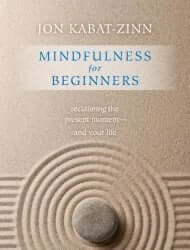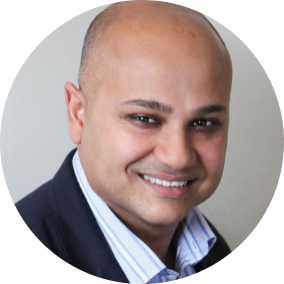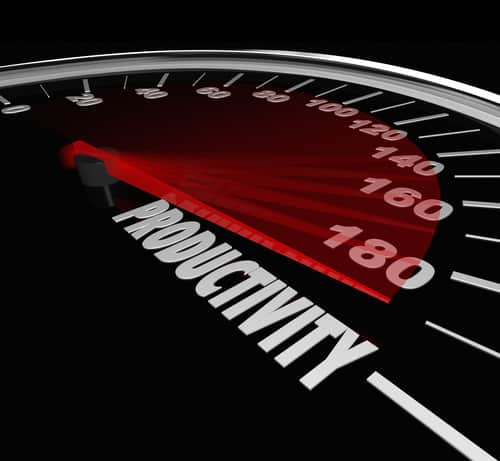How To Use Mindfulness To Maximise Your Productivity
Productivity and mindfulness. Those two words sound almost contradictory don’t they?
Probably because we associate productivity with a frenetic cyber-connected world. We associate being busy with being productive.
But in most cases being busy is how we procrastinate on the tasks that really matter. We get really busy with the “urgent” stuff that’s easy to deal with and we put off doing the hard stuff.
Working on the urgent stuff at the expense of the important stuff is often what stops us from achieving our long-term goals.
Productivity isn’t just about getting a lot of stuff – it’s about getting a lot of the right stuff done. The important stuff.
And to discern what’s important from what’s not – you need to be mindful.
What Productivity and Mindfulness are not
For most of us, the term “productivity” conjures up images of a frenzied flurry of activity focused on results at any cost at the end of which you fall in a heap on the floor.
And, we associate mindfulness and relaxation with this passive state of non doing.
Productivity according the the Oxford Dictionary
Here’s how the oxford dictionary defines productivity – “the effectiveness of productive effort, especially in industry, as measured in terms of the rate of output per unit of input”
I think this is dead wrong!
This definition is probably a hangover from the industrial age. Management theorists like Taylor imposed his Nazi like time and motion studies on workers and squeezed every last ounce of output from them.
He saw workers as automatons who’s role was to deliver an outcome at the lowest possible cost!
That definition of productivity is both mechanical and dehumanising.
My take on productivity
In my book productivity is the ratio of input to output that is also sustainable! This sustainability applies to our internal and external environments. Productivity at the expense of our mental well being or environmental balance is meaningless.

Sustainable productivity must incorporate self awareness within the context of one’s environment.
Which brings us to the definition of mindfulness.
The Oxford dictionary’s take on Mindfulness
The Oxford dictionary defines mindfulness as “the quality or state of being conscious or aware of something”. They got it right this time.
But there’s another thing about mindfulness. It has an extremely beneficial impact on the mind.
The experience of mindful effort has a completely different quality to the frenzied outcome obsessed effort we have been taught since childhood.

Mindful effort is not only calming but is much more sustainable over the long term … and therefore far more productive.
Jon Kabat-Zinn is the founding director of the Stress Reduction Clinic and the Center for Mindfulness in Medicine, HealthCare, and Society at the University of Massachusetts Medical School, as well as a Professor of Medicine emeritus. He leads workshops on Mindfulness-Based Stress Reduction (MBSR) for doctors and other health professionals and for lay audiences worldwide. He’s spoken about mindfulness and it’s practical applications at large corporations like Google.
In his book called Mindfulness for Beginners John Kabat-Zinn outlines rational justifications for mindfulness and it’s practical applications in the workplace.
Mindfulness and productivity – a thought experiment
I can prove that mindful effort is a far more enjoyable state and I can prove it right now! Try this simple thought experiment.
Close your eyes and take three deep breaths counting to three on each inbreath and five on each out breath and then open your eyes …
Now while keeping your attention on your breath continue reading this article.
Do you feel a difference? Does the process of reading feel less frenzied? Is there a difference in the texture of the thoughts that these words conjure up?
There is for me.
I find that the words have a certain lightness to them. The message in the article seems a bit less mission critical. There isn’t this clinging need to wring every last ounce of meaning from this article and consume it for all it’s worth so that I can get more … more … more!
Instead with my attention anchored on my breath I find there’s a certain sense of spaciousness around the ideas conjured up by the words I’m reading off the screen.
Mindful effort is far more sustainable over a longer period
Paradoxically the choice not to consume every word (so I can rush off to my next conquest) allows me to absorb the overall import of the sentences in their entirety.
The spaciousness allows for the concepts to simmer for a moment within a wider context and then rest in my mind within a holistic perspective … as opposed to a grasping attempt at grabbing the key point and moving to the next idea.
The whole experience is more enjoyable and far more sustainable.

With this openness in my approach I could immerse myself in the material and absorb more information over a longer period of time.
Moreover I find myself enjoying “the journey” as I drift through the sentences without a consuming need to extract all the meaning and scramble to “destination” in that last sentence.
So is it possible to be productive and mindful? Is there such a thing as relaxed effectiveness?
You betcha!!!
Now let’s go back to the breath ….
😉
(This post includes affiliate links. By purchasing items via these affiliate links you’re helping me earn a small commission at no additional cost to you. This enables me to provide you with good quality FREE content. The more you click the harder I work. :-))

